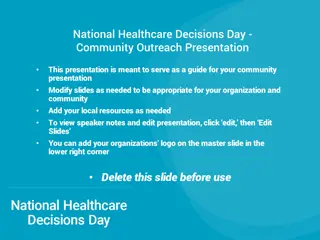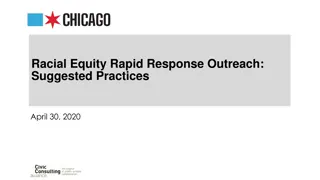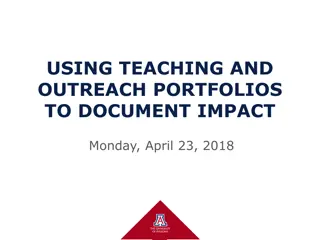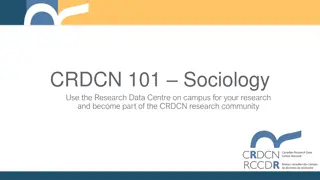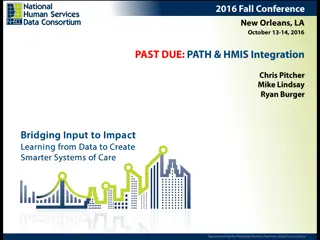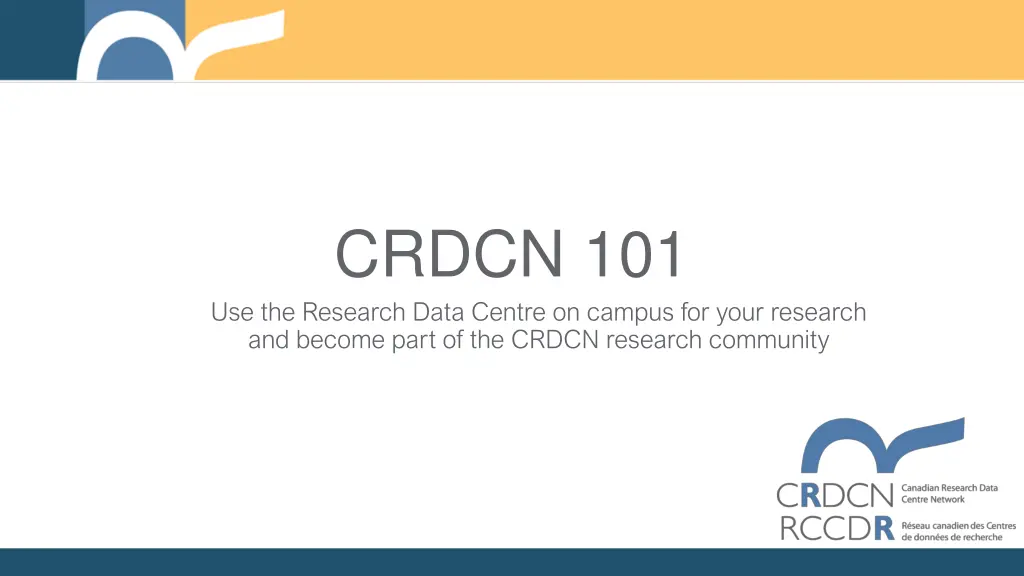
Access Exclusive Research Data at CRDCN Research Data Centre
Discover the Canadian Research Data Centre Network (CRDCN) providing unique access to Statistics Canada microdata and other datasets at Research Data Centres (RDCs) on 33 campuses. Explore secure facilities, protected individual data, and a network of researchers for comprehensive research opportunities.
Download Presentation

Please find below an Image/Link to download the presentation.
The content on the website is provided AS IS for your information and personal use only. It may not be sold, licensed, or shared on other websites without obtaining consent from the author. If you encounter any issues during the download, it is possible that the publisher has removed the file from their server.
You are allowed to download the files provided on this website for personal or commercial use, subject to the condition that they are used lawfully. All files are the property of their respective owners.
The content on the website is provided AS IS for your information and personal use only. It may not be sold, licensed, or shared on other websites without obtaining consent from the author.
E N D
Presentation Transcript
CRDCN 101 Use the Research Data Centre on campus for your research and become part of the CRDCN research community
What is CRDCN and what is unique about data accessed via the RDC? The Canadian Research Data Centre Network (CRDCN) provides unique access to Statistics Canada microdata and other data* at Research Data Centres (RDCs) on 33 campuses across the country. The RDC is a secure facility where researchers access detailed survey and administrative microdata. The RDC's repository includes social and business survey data and administrative records from a variety of sources including tax, employment insurance, social assistance, and hospitalization records. Individual data are protected: (1) names and ID numbers are removed; (2) access to data only permitted on secure systems that have no internet access; (3) researchers take training on confidentiality and privacy and Statistics Canada personnel use disclosure analysis to ensure that no individual, household or business can be identified. CRDCN is also a place for training and networking with your fellow researchers. There is an annual CRDCN conference, and RDC-specific events at many universities. Have a look at our events calendar to find one that interests you. *Data includes that from Statistics Canada, CIHI, IRCC, ESDC, BC Ministry of Education, MCCSS Ontario and more
Statistics Canada microdata subject area categories Agriculture and food Business and consumer services and culture Business performance and ownership Children and youth Construction Crime and justice Digital economy and society Economic accounts Education, training and learning Energy Environment Manufacturing Families, households and marital status Government Health Housing Immigration and ethnocultural diversity Income, pensions, spending and wealth Indigenous Peoples International trade Labour Languages Population and demography Prices and price indexes Retail and wholesale Science and technology Seniors and aging Society and community Statistical methods Transportation Travel and tourism
Examples of datasets available via CRDCN Examples of survey data: Aboriginal Peoples Survey (APS), Canadian Community Health Survey (CCHS), Canadian Survey on Disability (CSD), General Social Survey (GSS), Housing and Environment Survey (HES), Labour Force Survey (LFS), Public Service Employment Survey (PSES), Youth in Transition Survey (YITS) Examples of administrative records: Canadian Birth-Census Cohort, Canadian Cancer Registry (CCR), Canadian Census and Health Environment Cohort (CanCHEC), Census, Discharge Abstract Data (DAD), Employment Insurance data, Education Labour Market Longitudinal Platform (ELMLP), High System Users (HSUS), Longitudinal Immigrant Database (IMDB), Vital Statistics (CVSD) Examples of linked survey-administrative data: CCHS-DAD-IMDB, LSIC (CCR/CVSD), NLSCY (T1/tax data), NPHS (T1/CVSD), SLID (T1/CVSD/CCR), YITS (T1) More than More than 200 datasets 200 datasets are available are available
Research in the RDCs American Economic Review The Impact of Childhood Social Skills and Self-Control Training on Economic and Noneconomic Outcomes: Evidence from a Randomized Experiment Using Administrative Data (Algan, Beasley, C t , Park, Tremblay and Vitaro, 2022) CMAJ Suicidality among sexual minority and transgender adolescents: a nationally representative population-based study of youth in Canada (Kingsbury, Hammon, Johnstone and Colman, 2022) Migration Studies The demographic determinants of inter-provincial migration declines in Canada: A decomposition analysis (White and Haan, 2021) Social Psychiatry and Psychiatric Epidemiology Social determinants of ethno-racial inequalities in substance use: a decomposition of national survey data (Blair and Siddiqi, 2022)
RDC on the university campus Location on campus: [add location on your campus] [add to individual website for your local/campus RDC, if available] Data librarian(s) at the university: [add info here] How to access Statistics Canada Microdata through an RDC: 1) Ensure your project requires Microdata 2) Complete a project proposal 3) Request a letter from your supervisor 4) Upload your documents to the Microdata Access Platform
Find out more about CRDCN Visit the CRDCN website Sign up for the CRDCN newsletter Participate in the CRDCN annual conference and other training Search or browse the publications and reports to get to know the work of the 2000+ researchers in the CRDCN community Learn more about the data access continuum (including the Data Liberation Initiative, Real Time Remote Access and Public Use Microdata File) and Statistics Canada





